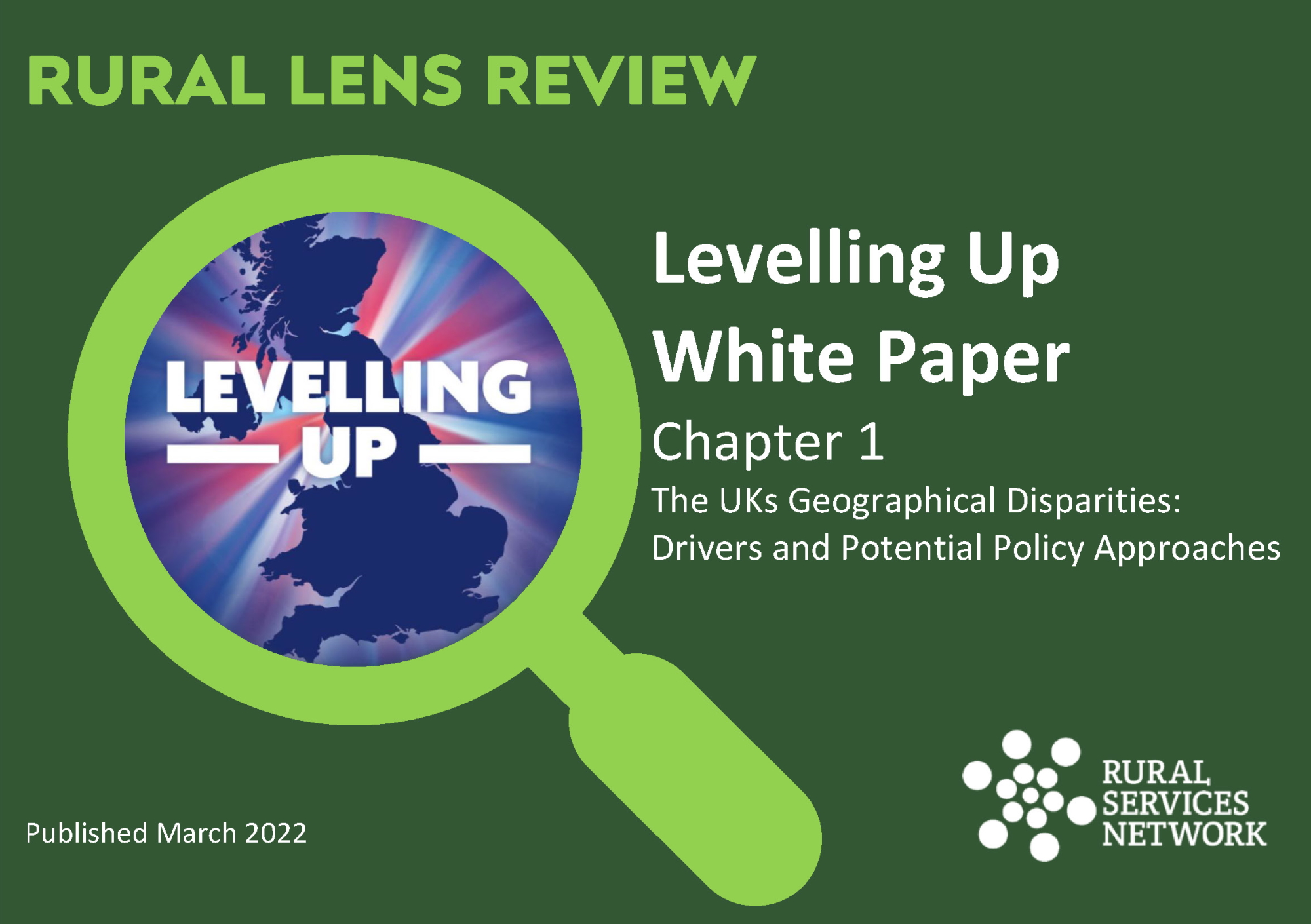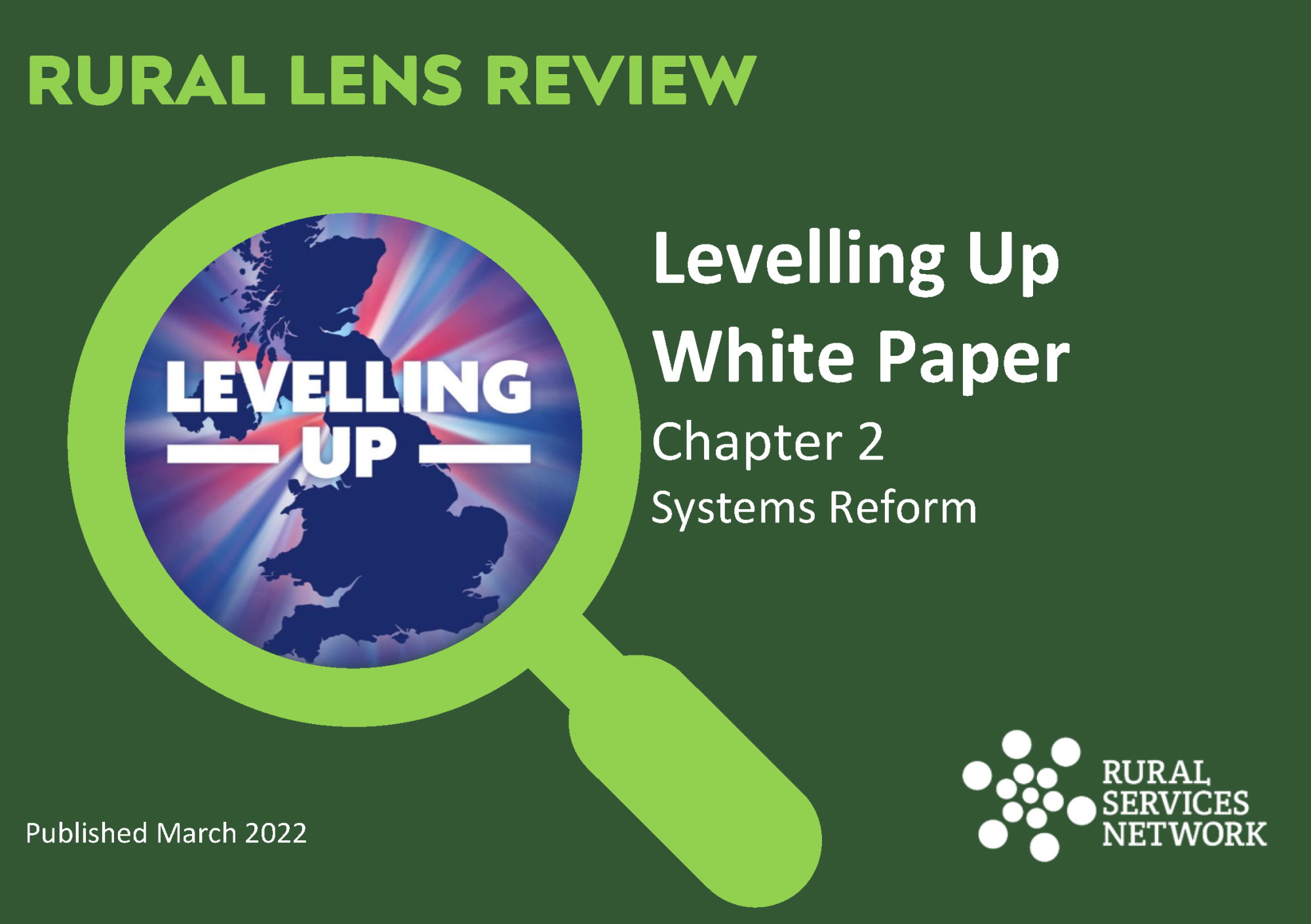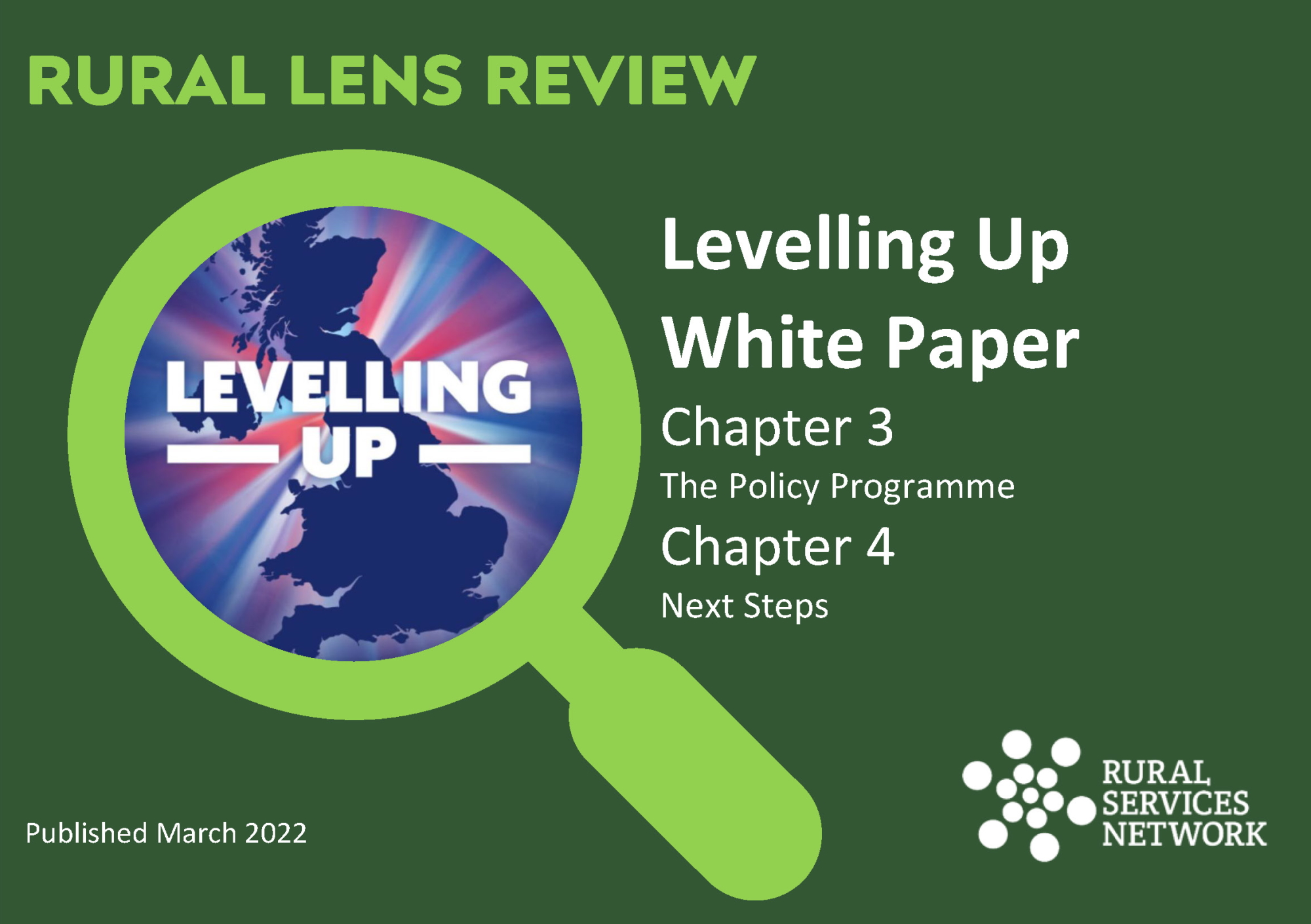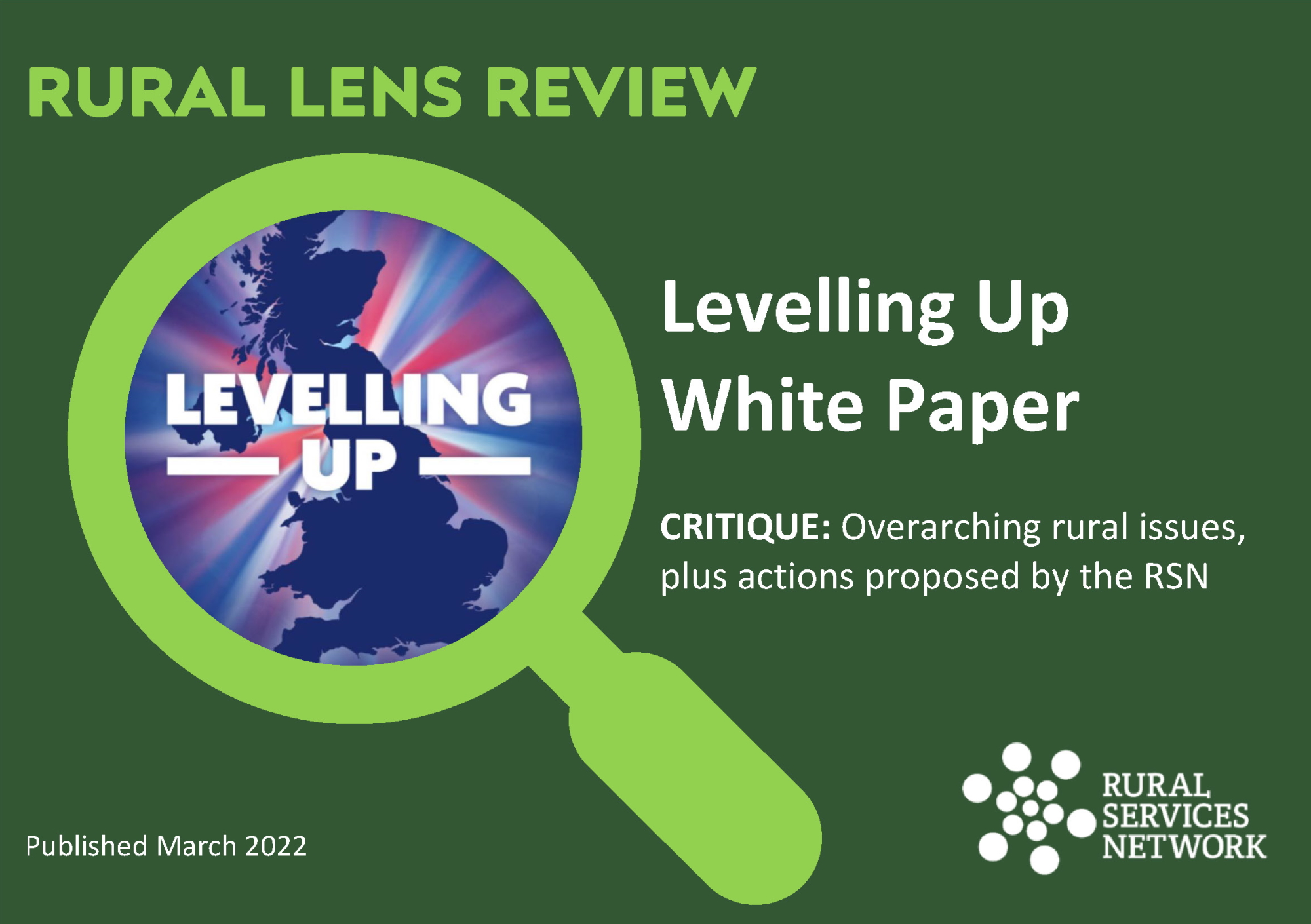T: 01822 851370 E: [email protected]
Visit RSN Survey about life in rural England to find out more.
Overarching Rural Lens review of Levelling Up White Paper published
Is the Levelling Up White Paper fit for purpose in the rural context? That’s the question being explored by the Rural Services Network in its overarching Rural Lens critique of the Levelling Up White Paper.
We have published specific analysis of each chapter of the White Paper, but this critique considers the overall Levelling Up document and a strategic view of the implications for rural communities.
The main points to consider are as follows:
- Most proposals for targeted interventions appear to be major town or city focused with rural areas, people, communities and businesses overlooked. A key question across all of the Policy Programmes is whether they will reach rural areas and designed (and funded) to reflect rural issues and circumstances? In short is the White Paper fit for purpose in the rural context?
- The ‘Improving Public Services’ outcome sought will never be equitably achievable in rural areas unless and until all the funding formulae for the allocation of national funds to local authorities (and other public service organisations) are fair and reflect the addition costs of service delivery in rural areas. It should be noted from the Local Government Finance Settlement for 2022/23 there are no planned increases in grant funding in either 2023/24 or 2024/25 that there
- No real details on which bodies are going to be charged with Local Government seems to have a major role -but no explanation of additional funding to meet change on the scale envisaged (let alone addressing the current funding gap). That said, even a cursory glance down the list of missions and metrics shows that against nearly every one local government has a role to play.
- It would be more appropriate for funds that are part of the Levelling Up agenda to assess the standards of living achievable in different locations given local labour market The cost of living in rural areas is generally higher than in urban.
- The ‘proposed legislation - to put in statute some of the key pillars of levelling up’ - must include an obligation to publish an annual report on delivery against the levelling up missions. The legislation must include for specific section(s) in that annual report to include delivery in rural areas against SMART
- A specific rural sub-group of the Levelling Up Advisory Council should be established from the outset and would instill more confidence that rural issues were being considered
- Population construct affects workforce and workforce is a key component of the government’s levelling up ambitions regarding productivity, pay, etc. It, of course also impacts on many service costs as referred to above relating to the “Improving Public Services Outcome”. Over 65s accounted for 23.7% of the Predominantly Rural population (15.9% for urban). Over 85s accounted for 3.1% of the Predominantly Rural population (2.1% for urban). Population is projected to be in 2041 - over 65s projected to account for 31.6% of the Predominantly Rural population (21.1% for urban). Over 85s projected to account for 6.2% of the Predominantly Rural population (3.7% for urban). The number of over 85s between 2018 and 2041 in Predominantly Rural local authorities is projected to increase by 117.9% (92.7% for urban). In 2018 the average age in rural areas was 44.7 years – 5.6 years older than in urban areas.
WE NEED A STRATEGY THAT RECOGNISES THE ECONOMIC AND SOCIAL BENEFITS OF DELIVERING LEVELLING UP IN RURAL AREAS: WITHOUT SUCH RECOGNITION RURAL ENGLAND WILL BE OVERLOOKED, BY-PASSED AND PUSHED DOWN FURTHER, RATHER THAN LEVELLED UP. SUCH A STRATEGY NEEDS TO BE DELIVERED ACROSS DEPARTMENTS AND FOCUSED ON GENUINELY LEVELLING UP AND REVITALISING RURAL AREAS/ECONOMIES.
You can read the individual reviews by clicking on the relevant image below:
 |
 |
 |
 |
The Rural Coalition has published a joint statement in response to the Levelling Up White Paper.
The Rural Coalition is an alliance of thirteen national organisations who bring a wide range of perspectives and experience of rural communities, businesses and the countryside and who together subscribe to a vision for a living and working countryside in England.
The Government’s ambitions for Levelling Up present a real opportunity to address the historic and current challenges for underperforming rural areas of the country. To do so fairly and equitably, the metrics and measures adopted need to be sufficiently sensitive and fine-tuned to recognise the particular circumstances and needs of rural areas.
The overriding philosophy presented for levelling up appears to be based on the assumption that growth and improvement derives primarily from cities and urban aggregation and that success in these will trickle down to surrounding areas. In our view there is no real evidence across England today to support this assumption. We believe this is a missed opportunity to recognise the role rural areas play in the national economy and the wellbeing of the country and how this could be enhanced. There is a need to build a real understanding and recognition of the particular problems facing rural areas; of the means of addressing them; and what a place-based approach means in a rural context



